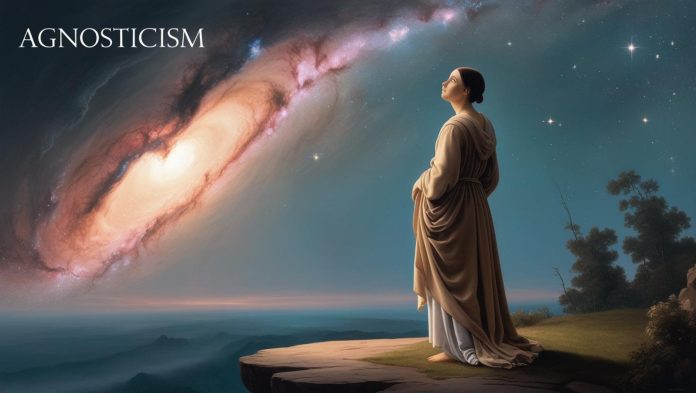Agnosticism is a philosophical position that centers on the belief that the existence of God or any divine being is unknown or unknowable. Unlike atheism, which asserts a lack of belief in deities, agnosticism maintains that human knowledge is limited when it comes to the divine.
Agnostics typically refrain from making definitive claims about the existence or non-existence of God, acknowledging that the nature of ultimate reality may be beyond human comprehension.
At its core, agnosticism suggests that evidence for or against the existence of a higher power is insufficient. Some agnostics lean toward a skeptical view, suggesting that humans may never have access to the evidence required to resolve such questions. Others take a more open stance, believing that the truth may someday be revealed, but it’s not currently attainable.
Agnosticism can also be seen as a personal journey. Many agnostics explore spirituality without committing to any particular religious doctrine, emphasizing individual experience and questioning over doctrinal certainty. In this sense, agnosticism invites a sense of intellectual humility—acknowledging the limits of human understanding and remaining open to discovery.
In a world rich with diverse beliefs, agnosticism provides a space for those who seek understanding without the certainty offered by traditional religious ideologies.


